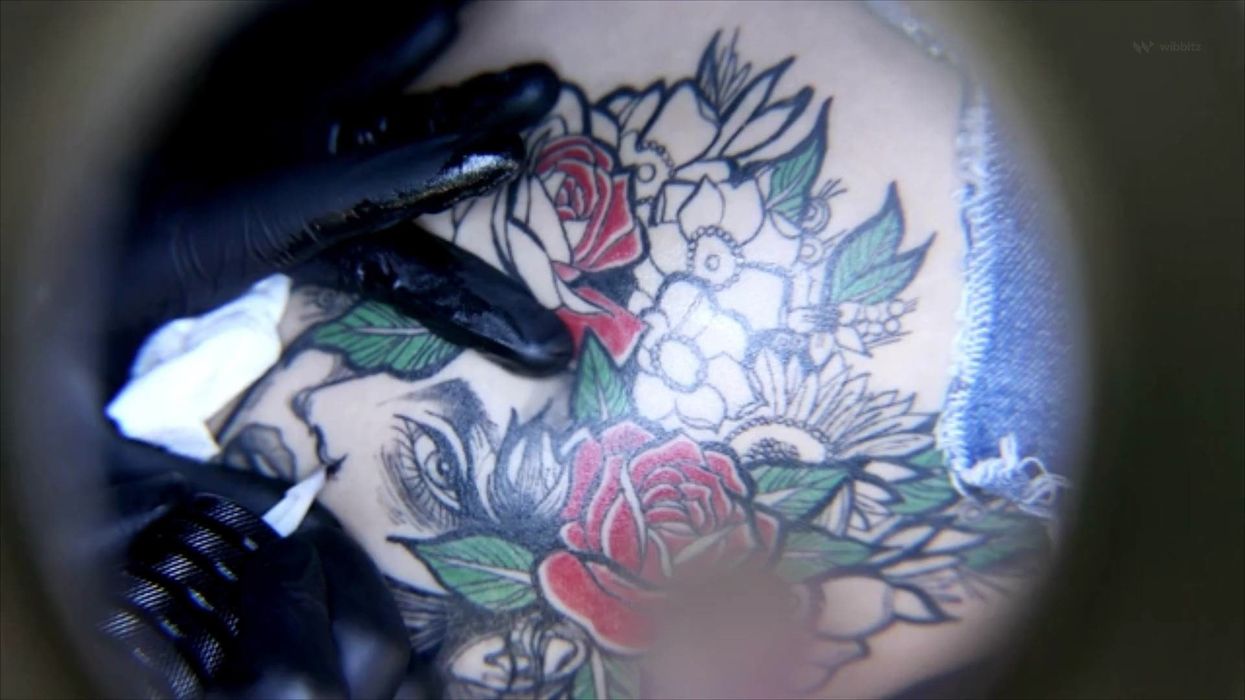Greg Evans
Mar 02, 2024
Study Suggests People With Tattoos Face Stigmatization in Justice System
Cover Media - Shareable / VideoElephant
Recent research delved into the composition of tattoo inks from various American manufacturers, revealing that a staggering 90 percent of them contained undisclosed ingredients, some of which are potentially harmful to human health.
Tattooing has become increasingly popular worldwide, with societal acceptance growing alongside the number of individuals opting for body art. In 2023, approximately 32 percent of adults in the US sported at least one tattoo, with 23 percent sporting multiple tattoos.
Despite the widespread use of tattoo ink and its presumed safety, new research indicates otherwise. Scientists at Binghamton University, led by Assistant Professor of Chemistry John Swierk, along with doctoral student Kelli Moseman, discovered discrepancies between the ingredients listed on tattoo ink labels and their actual contents during a study on the effects of light exposure on tattoos.
Analyzing tattoo inks from nine American manufacturers, including both prominent global companies and smaller producers, the researchers found significant inconsistencies in 90 percent of the 54 inks tested. These variations ranged from different pigments to undisclosed additives.
Alarmingly, over half of the inks contained polyethylene glycol, a substance used to treat constipation but known to cause organ damage with prolonged exposure. Additionally, 15 percent contained propylene glycol, recognized as a potential allergen, and other unlisted ingredients included Hexamethylenetetramine and 2-phenoxyethanol, both of which pose health risks.
The researchers emphasized the need for manufacturers to reassess their processes and for improved labeling and manufacturing standards. Unlike the stringent regulations imposed by the European Chemicals Agency, oversight of tattoo inks in the US has historically been lax. However, the passing of the Modernization of Cosmetics Regulation Act in 2022 granted the FDA authority to regulate tattoo inks.
Despite these developments, the study underscores the importance of vigilance regarding tattoo ink safety, especially given the potential risks associated with undisclosed ingredients. Furthermore, while some inks are now marketed as vegan-friendly, concerns persist regarding the presence of animal-derived substances such as glycerine and gelatine, highlighting the need for consumers to be well-informed about the products they use.
Swierk explained in a statement: "We're hoping the manufacturers take this as an opportunity to reevaluate their processes, and that artists and clients take this as an opportunity to push for better labeling and manufacturing."
The study was published in the journal Analytical Chemistry.
Sign up for our free indy100 weekly newsletter
How to join the indy100's free WhatsApp channel
Have your say in our news democracy. Click the upvote icon at the top of the page to help raise this article through the indy100 rankings
Top 100
The Conversation (0)














